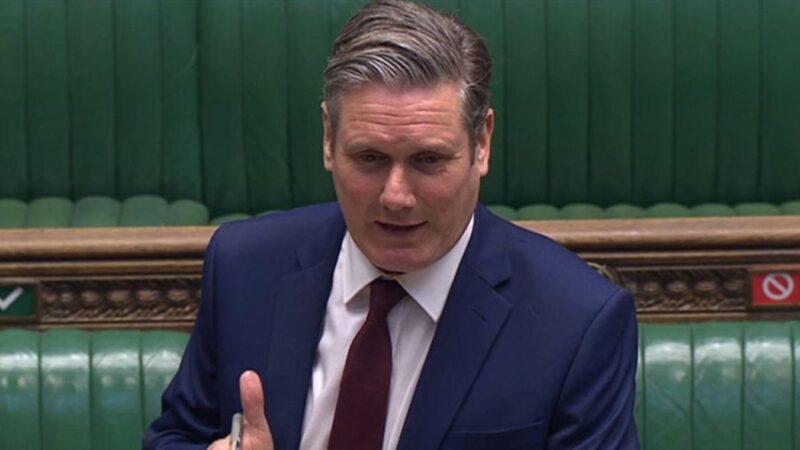Labour should be more supportive of the unions and less supportive of the government.

The relationship between the Labour Party and trade unions has never been static or one-dimensional. Labour’s party political project has regularly occasioned tensions and disagreements. But the past few days have been significant even in this long history.
As Boris Johnson announced an easing of lockdown restrictions on Tuesday, Keir Starmer welcomed the raft of changes, saying that “the government is trying to do the right thing, and in that we will support them”.
Labour’s position, which embraces a reduced 1-metre rule for social distancing, directly contradicts demands made by trade unions like BFAWU and USDAW to maintain a 2-metre distance. When challenged on this, Starmer’s team answered only that “retailers should listen to [Usdaw’s] advice”.
To the almost 500,000 workers represented by these unions, and millions in the retail and hospitality sectors, the idea that their bosses might simply choose to listen to their advice is a sick joke. To those in the highest-risk occupations, including meat-processing plants struck by massive outbreaks, it is a betrayal.
Unions in hospitality, retail and other high-risk sectors have been raising the alarm about company and government negligence for months. In May, for example, it emerged that promised Health & Safety Executive inspections have not been taking place.
The government’s furlough scheme left millions of low-paid workers living below the breadline. For the many hospitality workers who depended on unreliable overtime and tips to supplement poverty pay, and those with zero-hours contracts, there is nowhere near enough support.
As is often noted, Starmer’s Labour leadership has adopted a more conciliatory tone towards the government. The way this has changed its relationship with union campaigns is less widely reported, but just as vital.
The Labour frontbench has been consistently out of step with the most radical trade unionist voices. While Wetherspoons staff have been setting out clear and powerful demands their bosses should satisfy before any return to work, the Labour leadership’s positions have undercut them by some way. Tuesday’s ‘crunch point’ was just the most recent and most critical example.
This is a gross betrayal of many organised workers. Shop workers and others who have been rightly celebrated as key, frontline workers are not getting the support they deserve from the party which claims to represent the organised working class.
This is widely felt, and is being vocalised. The BFAWU have publicly stated that Tuesday’s decision put “profit before people” and questioned whether the voices of trade unionists are only valued in proportion to their financial contributions. Coming from an affiliated union, these statements are significant.
The Labour leadership’s triangulation is not only disrespectful. It also suggests a view of trade unions under which their demands and expectations are to be managed and soothed, but not amplified. Under this view, trade unions provide funding and electoral muscle, but ought not to be too influential with the Labour leadership.
This is a grave mistake. Trade unions and their members – because they organise at sites of intense exploitation – have the potential to exercise power to transform society. By leading with their demands, the left could and should build them up as key elements of a broader transformative movement. As institutions with deep and durable roots in communities, unions have potential to rebuild organic support for the left where it has begun to wither.
Wherever Labour is falling drastically short, others must be prepared to provide the unconditional support that trade unionists deserve. This means socialists, Greens, and others being loudly and unapologetically supportive of workers’ demands, and holding each other to the best of our respective traditions. Key workers in all sectors deserve no less.
Matthew Hull is a Unite workplace rep and a Green Party member, standing to be the party’s trade union liason officer.
Left Foot Forward doesn't have the backing of big business or billionaires. We rely on the kind and generous support of ordinary people like you.
You can support hard-hitting journalism that holds the right to account, provides a forum for debate among progressives, and covers the stories the rest of the media ignore. Donate today.



